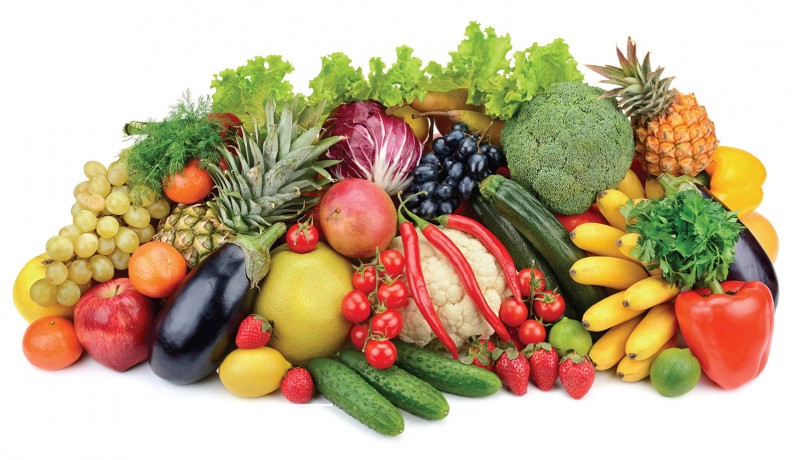
Health

Your diet can keep macular degeneration at bay, says Naini Setalvad.
Ageing is associated with a host of problems in the body. One of them is macular degeneration—the primary cause of vision loss in silvers. Macular degeneration is said to be the leading cause of blindness in people above 60 years; and this figure is expected to increase in the years ahead. The decline in vision leads to other problems like difficulty in reading, driving, etc, thus causing depression.
What is macular degeneration?
Macular degeneration is the deterioration of the macula, which is the small central portion of the retina of the eye that controls visual acuity. This area is responsible for focussing central vision of the eye and controls our ability to read, drive or perform tasks that require us to see fine detail.
If you have been diagnosed with macular degeneration, do not despair. There is a wide variety of brightly coloured vegetables that help keep the disease at bay and your vision healthy.
Food to the rescue
Increase the intake of antioxidants—especially Vitamin A (which contains compounds like lutein and zeaxanthin), Vitamin C and omega-3 fatty acids—in your daily diet. Present in a range of vegetables and fruits that are yellow or green in colour, these help prevent macular degeneration and keep your eyes healthy. Eat more of such foods and avoid gorging on unhealthy junk food. Ultimately, a healthy diet and lifestyle supports healthy vision.
Here are some value-added foods you can incorporate into your diet:
- Rainbow colours: The next time you are ordering groceries or planning your diet, do it according to colour. Bring home a basket filled with a rainbow of colours right from oranges and greens to reds and purples. Think pumpkin, yellow corn, yellow and red bell pepper, carrots, yams, peaches, grapes, oranges, mangoes, dried apricots and nectarines.
- Carrots: Foods such as carrots and pumpkins contain a good amount of beta carotene and Vitamin A, both of which are essential for your eyes. Consider them friends to your eyes—they are necessary to replenish eye cells and important for night vision. Soup them, add them to your vegetables, dals and sambars and you will definitely see the results.
- Green veggies: As lutein is abundant in greens, try and get at least three servings of dark, leafy greens every day. The darker the green, the higher the lutein content. Make sure you consume lettuce, spinach, fenugreek, mint, coriander and other such greens every day in some form or the other. You can add the leaves in soups or dal, or boil and puree them and add them while kneading dough for chapattis, or simply stir-fry them along with vegetables.
- Vegetable and fruit peels: Lutein is also found in peas, green beans and avocados; it colours some edible skins, like cucumbers and bottle gourd. So remember not to peel cucumbers in future. Instead wash them well and toss the unpeeled veggies in your salads.
- Vitamin C: Lemons, gooseberries, guavas, tomatoes, mangoes, pineapples and oranges are abundant in Vitamin C. Ensure you eat them daily. It’s also a good idea to squeeze a lemon on all your foods before eating.
- Eggs: Egg yolk can improve eye health to a great extent. Just make a simple omelette or scrambled egg with coriander, peppers and spinach. Remember to use cow’s ghee for cooking; it is one of the essentials for healthy eyes.
- Seeds: Walnuts and flaxseeds are abundant in omega-3 fats; add them to your daily diet. Sunflower seeds contain selenium, a nutrient that prevents cataract and promotes overall eye health. The best thing is to keep a jar of mixed seeds on your dinner table and snack on them whenever hungry.
- Fish: Regular consumption of fish can promote eye health. Fish like hilsa, surmai (seer fish) and bangda (Indian mackerel) are rich in omega-3 fatty acids.
- Other foods: Prunes and pistachios are excellent for macular degeneration. Turmeric is also a very valuable spice to maintain eye health. Either add turmeric powder to your food or eat fresh turmeric root like a pickle—just cut in pieces and marinate in salt and lemon juice.
Top tips
- Avoid consuming foods high in salt, refined sugar, oil or butter. They destroy the antioxidants, vitamins and minerals from your body that are necessary to keep your eyes healthy.
- Avoid smoking and excessive alcohol.
- Make sure you exercise daily in moderation and keep your weight in check.
- Guard your eyes against harsh sunlight and keep away from smoky places.
RECIPE FOR EYE HEALTH
Yellow pumpkin with cluster beans
Ingredients
- Yellow pumpkin: 200 gm; diced
- Cluster beans: 200 gm; chopped
- Ajwain (carom seeds): 1 tsp
- Ginger-chilli paste: 1 tsp
- Oil: 2 tsp
- Salt to taste
Method
Heat 1 tsp of oil in a wok and roast the ajwain. Add the yellow pumpkin and cook for 10 minutes. Add the cluster beans and other spices. Cover the wok, add water on the lid and cook for some time. If you wish, you can garnish it with grated coconut and lime.
Setalvad is an obesity and lifestyle disease consultant who offers diet counselling at Health for You, a wellness clinic in Mumbai, as well as online. Visit www.nainisetalvad.com for more details or write to contact.us@harmonyindia.org if you have any queries for her
Photos: iStock Featured in Harmony — Celebrate Age Magazine February 2017
you may also like to read
-
Hot tea!
If you enjoy sipping on that steaming hot cup of tea, think twice. New research establishes a link between drinking….
-
Weight and watch
If you have stayed away from lifting weights at the gym, thinking it might not be a good idea for….
-
Toothy truth
Research has established a clear association between cognitive function and tooth loss when cognitive function score was categorised into quintiles…..
-
PRODUCT OF THE MONTH
Automatic Blood Pressure Monitor Measure your blood pressure and pulse rate with no fuss Hypertension, or high blood pressure, could….







